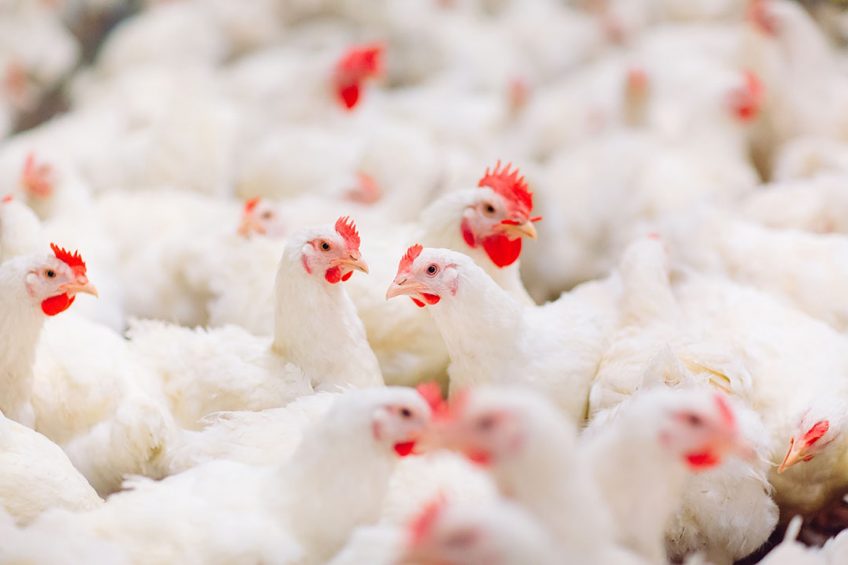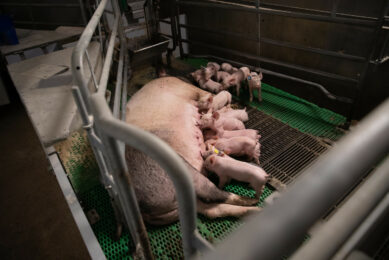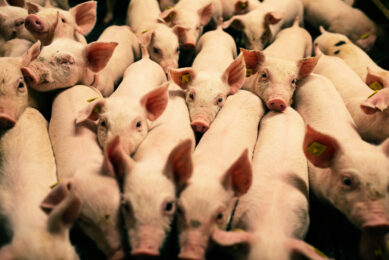The road towards antibiotic-free poultry

Poultry producers are educating themselves and exploring suitable alternative multidisciplinary programs that encompass efficient management as well as optimise nutrition and disease management. Most are finding that there are critical success factors in creating an antibiotic-free production environment.
The evolving poultry industry along with changing consumer expectations have, amongst other things, led producers to develop innovative strategies to meet the challenge of ensuring optimal bird production with fewer and fewer antibiotics. Removing antibiotics from the diet and drinking water, where they are primarily used to prevent bacterial growth requires producers to manage much more precisely the quality of their basic feed composition and drinking water hygiene. A well-formulated diet of high-quality ingredients that best meets the nutritional requirement of the birds while promoting a healthy intestinal tract is imperative in any antibiotic free (ABF) program. But something more is needed to ensure maximum digestibility of the feed. This includes a combination of thoroughly selected raw materials and the use of targeted enzymes, which can also result in a considerable reduction in the amount of therapeutic antibiotics necessary during the production cycle.
Poultry producers can face undesirable gut myopathies as they work to cut or curb antibiotics from their production, resulting in a reduction in performance and economic loss. Necrotic enteritis or non-specific bacterial enteritis (dysbacteriosis) are the most common worldwide challenges seen. As a result, over the years, a wide range of feed additives have been introduced to the market, fully dedicated to assist the poultry industry in realising the ABF goal through optimising a healthy digestive tract of the animals.
Recent scientific efforts from Novus International, Inc., focusing on two specific pathways, feed digestibility and influencing intestinal integrity, have provided more insight into the positive effect producers might expect from two products: Cibenza EP150, an enzyme feed additive, and Next Enhance 150, an essential oil premixture. Together these products can offer poultry producers a potential tool for maintaining optimal bird performance and production profitability without the need for antibiotics.
New possibilities through feed or water
Various research and studies conducted in commercial production conditions have shown that the activity of a protease enzyme to improve the digestibility of proteins in the diet, combined with beneficial effects of bacterial spores on gut flora diversity and intestinal integrity, results in a synergistic positive effect on the health and meat yield of birds. Cibenza EP150 is the first registered and authorised zootechnical feed additive preparation in the EU that combines a protease and the spores of its production organism Bacillus licheniformis (EU identification number 4d12). Study findings list, for example, a significant reduction in Clostridium perfringens counts in the ileum, a lower intestinal inflammatory response and increased faecal bacteria diversity when feeding birds with this combination compared to non-supplemented birds.
A category of additives gaining market share thanks to their nutritional benefits are essential oils. Studies conducted with both thymol and carvacrol in bird diets have reported positive immune health responses. Next Enhance 150 (NE150) is a highly concentrated premixture encapsulated blend of thymol and carvacrol and has been formulated to stabilise gut microflora and support feed utilisation in monogastrics. Studies have shown that broiler birds fed diets with the additive had reduced C. perfringens and E. coli numbers in the intestines, enhanced gut morphometry as well as a boost to the immune system.
In a recent necrotic enteritis challenge study in broilers, birds fed diets with NE150 had better feed conversion ratio post- challenge when compared to control birds fed a non-supplemented diet, although antibiotic Bacitracin Methylene Disalicylate (BMD)-fed birds had better feed conversion ratio than both control and NE150 birds. However, the incidence of necrotic enteritis lesions and the rate of bird mortality, similar between both the NE150 and BMD groups, was also significantly reduced compared to the control group (Figure 1).
Figure 1 – Cumulative feed conversion ratio (cFCR) and mortality and necrotic enteritis lesions post-challenge.

In addition, the latest scientific data shows the product can contribute to managing coccidiosis in broilers by reducing host inflammation and faecal oocyst shredding. This research suggests that the nutritional benefits of NE150 can support bird performance under necrotic enteritis or coccidiosis challenges, making it a potential alternative to antimicrobials in the diet or an aid in limiting therapeutic use of antibiotics.
But feed isn’t the only area where bacteria can grow and spread. The application of an in-feed program with optimal management of drinking water can further strengthen positive results. By integrating regular water supply line sanitation and including solutions to promote a low pathogenic load in drinking water, producers can create the ideal nutritional program to achieve their ABF goals. One particular premixture on the market fuses the organic acid properties of methionine hydroxy analogue HMTBa (Alimet feed supplement) with the benefits of other organic acids to reduce the pH in water thereby making it less conducive for bacterial growth (Activate WD Max, nutritional feed acid).
Partnering with the feed additive industry
Producers shouldn’t feel they must manage the challenge of removing antibiotics alone, particularly as there is no single solution for this situation. Novus offers a wide portfolio of options ranging from feed acidifiers, trace minerals, enzymes and various eubiotics that can be combined to promote animals’ immunity, gut health and performance. With the support of trained technicians who can provide expertise on intestinal health, nutrition and poultry management, taking into account production capabilities, local regulations and economic position, Novus can be a partner for poultry and feed producers in exploring and implementing an individualised nutritional program as they transition to ABF production.
References available on request
Author: Dr Frederika Somers, Novus International, Inc.






